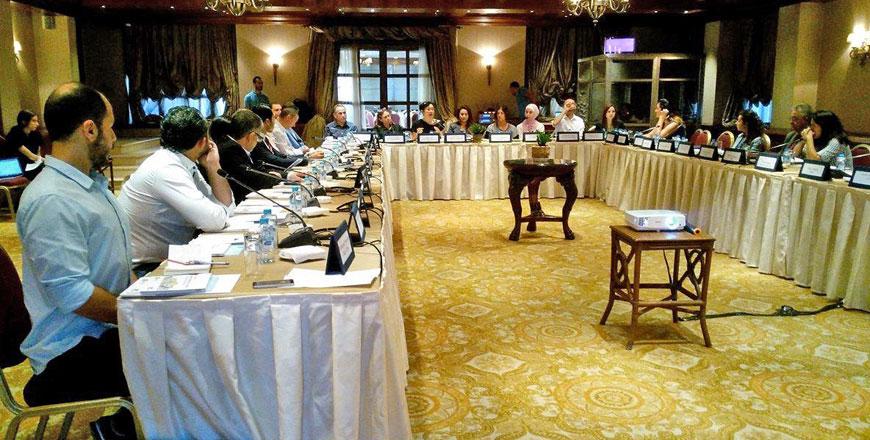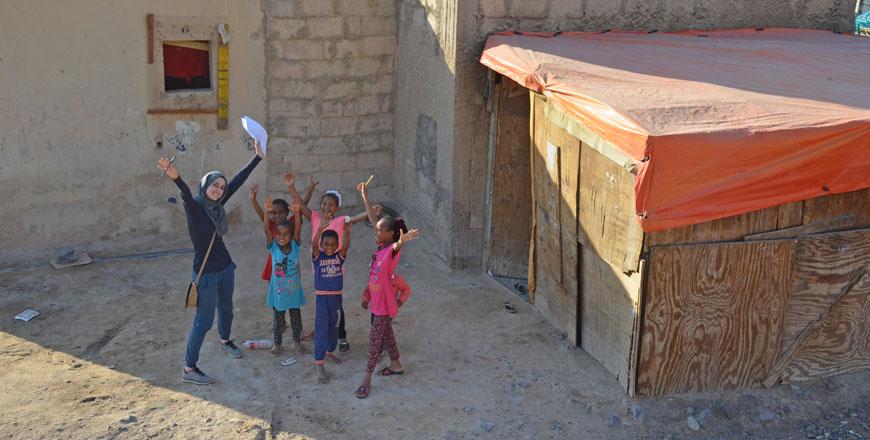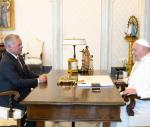You are here
Stakeholders review ways to reduce social pressures through renewable energy investments
By JT - Jun 28,2018 - Last updated at Jun 29,2018
AMMAN — Two workshops aimed at developing ways to scale up the use of renewable energy and energy efficiency measures in the Kingdom in line with the Jordan Response Plan and Jordan’s Economic Growth Plan were conducted this week, as part of the Moving Energy Initiative.
The WANA Institute, Chatham House, EDAMA and the NRC first hosted a roundtable meeting on Wednesday, which gathered high-level stakeholders from different government entities to discuss how significant energy cost-saving methods for public and community buildings in refugee hosting areas can generate funding to improve services and reduce social pressures, a WANA statement said.
“Energy efficiency and renewable energy for schools can reduce electricity bills to zero,” Glada Lahn from the Moving Energy Initative said, noting "given that Jordan faces an electricity deficit of some JD5 billion, national implementation of such initiatives would be of long-term benefit to the Jordanian economy. Education and health standards would also improve with better temperature conditions in the buildings, hot water all year round and the possibility to improve the quality of services by investing the generated savings,” she added.
Roundtable participants discussed potential long-term partnerships with the private sector and raised ideas for how donor aid or soft loans can be used to kick-start sustainable local financing for scaling up green initiatives, the statement read.
On Thursday, a second workshop focused on the outcomes from the two Moving Energy Initiative pilot projects in Jordan: the Green Affordable Homes project conducted by the Jordan Green Buildings Council and the Habitat For Humanity initiative, which retrofitted 48 low-income Jordanian family homes and built three new affordable green homes in Ajloun and Salt.
“There are currently 2 million Jordanians and Syrians without access to affordable housing and 1.3 million people in Jordan living in sub-standard accomodation,” Aya Rabab’ah, programme manager of the Jordan Green Buildings Council said, highlighting “retrofitting existing homes in Jordan can improve the quality of life of many families without increasing their energy bill.”
Meanwhile, Millennium Energy Industries has almost completed the solarisation of Al Mafraq Hospital’s water heating system, which is estimated to save the hospital around JD32,000 in diesel costs per year, allowing these funds to be spent on improving health care facilities, according to the statement.
“In 2017, 20,281 Syrians were treated in the Mafraq public hospital’s emergency room, compared to 27,341 Jordanians,” General Manager of the Thermal Unit at Millennium Energy Industries Hisham Mihki, said.
“The influx of Syrian refugees has resulted in a 20 per cent increase of electricity usage in the hospital, despite the energy saving measures the Ministry of Health introduced,” he explained.
“The money we save at the hospital, will be invested in improving the overall services, equipment, educational programmes and training of the medical staff,” General Manager of Al Mafraq Public Hospital Mohammad Tahan concluded.
Related Articles
AMMAN — A group of 30 international experts on Thursday convened in Amman to discuss ways to upscale sustainable energy investments in commu
AMMAN — Dozens of homes in Jordan have been retrofitted to meet "green" standards, allowing their inhabitants to enjoy a healthy indoor envi
AMMAN — The West Asia-North Africa (WANA) Institute in partnership with Konrad- Adenauer-Stiftung (KAS) hosted an interactive roundtable on

















